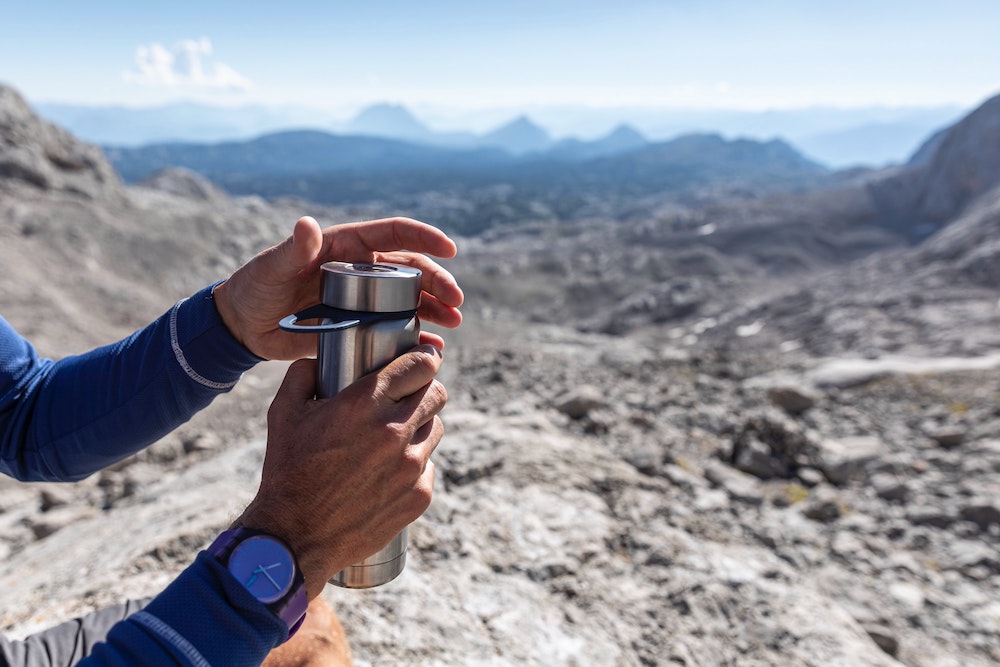Hydration: Steps to Staying Hydrated

With summer upon us, it's essential to keep our bodies hydrated. But how much is enough?
What are the signs of dehydration? And what steps can we take to stay hydrated?
This blog post will look at the importance of proper hydration and discuss some tips and tricks for staying hydrated throughout the day. From hydration myths to helpful advice on when and how much water to drink, we'll cover everything you need to know about proper hydration. So let's get started!
What is hydration?
Water is essential to the functioning of every cell in your body. Your body depends on water to perform many essential functions, such as regulating temperature and blood pressure, transporting nutrients and oxygen to cells, and flushing out toxins.
Your body becomes dehydrated when it loses more water than it absorbs. This can happen due to sweating, diarrhea, vomiting, or simply not drinking enough fluids.
Even mild dehydration can cause fatigue, headaches, and dizziness. Severe dehydration can lead to serious health problems like kidney failure, heat stroke, or seizures.
Simple actions you may do to stay hydrated include:
- Drink plenty of fluids throughout the day. Water is always the best choice, but you can also get hydration from other beverages like milk and juice. Avoid sugary beverages like soda and sports drinks because they might cause dehydration.
- Eat foods that contain water. Fruits and vegetables are excellent sources of water. Soup and broth are also good options.
- Drink before, during, and after exercise. Exercise increases your body's need for fluids, so drinking before, during, and after physical activity is essential.
- Don't wait until you're thirsty to drink. Your body starts to feel thirsty when it is already dehydrated. When you feel thirsty, you may already be at risk for dehydration-related health problems.
The importance of staying hydrated
For our bodies to function, we need water. Every system in our body needs water to work correctly, which is why staying hydrated is so important. When we are even just slightly dehydrated, our bodies can't work as efficiently.
Dehydration can cause many problems, from headaches and dizziness to constipation and kidney stones. It can also lead to more severe issues like heat stroke and seizures. And if you're already sick, dehydration can make your symptoms worse.
How much water should you, therefore, consume daily? Eight 8-ounce glasses of water should be consumed daily, although this number can change depending on your activity level, where you reside, and other factors. If you need help determining how much water you should drink, talk to your doctor or a registered dietitian.
There are many easy ways to ensure you're getting enough water daily. First thing in the morning, drink a glass of water.
Throughout the day, keep a water bottle close by so you may sip anytime you feel thirsty. Consume foods high in water content, such as fruits and vegetables, and experiment with infused waters or herbal teas to flavor your water.
Most people know they should drink eight glasses of water a day, but how much water you need depends on many factors, including your activity level, climate, and overall health. You need more than eight glasses daily if you're healthy and active.
There are many ways to gauge whether you're drinking enough water. One is to pay attention to the color of your urine.
If it's very dark, that's a sign you need to drink more water. Another way to tell is by how thirsty you feel. If you're thirsty, that means you're already dehydrated.
If you want to make sure you're drinking enough water, here are a few tips:
- Drink a glass of water first thing in the morning.
- Carry a refillable water bottle with you and take sips throughout the day.
- Drink water with every meal and snack.
- Eat foods high in water content, such as fruits and vegetables.
Foods that help with hydration
Water is the best source of hydration, but some other foods and drinks can also help keep you hydrated. These include:
- Fruit and vegetable juices
- Coconut water
- Sports drinks
- Herbal teas
Juices made from fruits and vegetables are a fantastic way to add more fluids and nutrients to your diet. Coconut water is a natural source of electrolytes, which can help to replenish those lost through sweating.
Sports drinks can also be beneficial for replenishing electrolytes, but they often contain high sugar levels, so they should be consumed in moderation. Herbal teas are a good option for those who don't like the taste of plain water, and wide varieties have health benefits too.
Tips for staying hydrated
- Drink plenty of fluids every day. Drinking juice regularly throughout the day is the best way to stay hydrated. Aim for eight glasses of water or other fluids each day.
- Avoid sugary drinks. Sugary drinks can cause you to lose body fluid and can make you feel more thirsty.
- Drink before, during, and after exercise. You were drinking before, during, and after training is essential to help your body replace the fluid lost through sweating.
- Avoid alcohol. Alcoholic beverages can dehydrate your body and should be avoided if you try to stay hydrated.
- Eat water-rich foods. In addition to drinking fluids, you can also stay hydrated by eating water-rich foods such as fruits and vegetables
Conclusion
For maximum health and well-being, it's crucial to be hydrated, so make sure you're doing everything possible to give your body the water it needs. By following our tips on how to stay hydrated, you can help boost energy levels, improve physical performance, maintain healthy skin and reduce the risk of dehydration-related illnesses or conditions. Make sure you drink more water today and reap all the fantastic benefits of adequate hydration!
